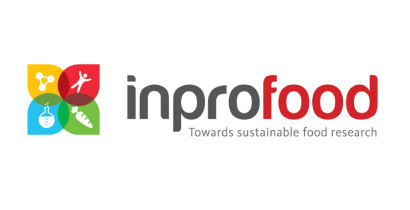Interactive policy game brings young people’s voices onto a European level (INPROFOOD)
Last Updated : 01 December 2014Over the course of three years the INPROFOOD consortium explored new ways to establish dialogue and mutual learning between the scientific and civil society community, developing practical guidelines for inclusive, sustainable research designs. An action plan, providing practical guidance for societal engagement, was generated out of the investigation of current processes, structures and actors involved in research agenda setting and funding decisions, and out of insights gained from evaluating and analysing a range of societal engagement tools that were tested throughout Europe. Among these, PlayDecide games were found very successful in bridging the gap between policy makers and young people in Europe.
PlayDecide, a serious game for young people
INPROFOOD aimed to reach out to the often difficult-to-reach young people in Europe in a way that was engaging. PlayDecide is a format specifically designed to learn discussing with confidence; it facilitates the take-up of participatory methods, and stimulates the exchange of experiences and knowledge.The game is composed of a set of cards covering facts, issues and personal stories on a chosen topic, which form the basis for discussion within a group of between 5 and 8 participants. The game takes about two hours to complete and is led by a facilitator.
Discussion is not the only purpose of these games; it is also to inform policy makers about common solutions, strategies and policies for action that come out of these discussions. Through dialogue and listening to different points of view, participants realise the complexity of policymaking. The main result of the game is the voting on four policy options, which are then uploaded to a dedicated website so results can be compared with other groups.
A ‘Healthy Diet and Lifestyle’ game
The European Food Information Council (EUFIC) and European network of science centres and museums (Ecsite) developed a PlayDecide game on a ‘healthy diet and lifestyle’. The purpose of the game (downloadable in 11 languages), is to engage young people in the debate on food and health-related challenges, to raise awareness about the related issues, and to identify solutions.
Seventeen science centres and museums, located in 11 European countries, engaged 2,757 young people aged 14-21 (mostly 15-16 years) in playing the game.
The game’s voting policy options asked young people’s position on government versus individual responsibility in the context of obesity. This ranged from ‘strong government regulation on all areas related to public health’ (option 1) to ‘no government regulation at all, with citizens having complete individual responsibility’ (option 4).
A total of 1,960 participant votes were uploaded to the game’s website, with the majority choosing the less extreme policy options (options 2 and 3). This meant that they preferred a blend of both government responsibility in providing guidelines and recommendations – not regulations – and individual freedom.
Option 3 received most of the votes: “Government should provide guidelines on a healthy diet and lifestyle and regulate food labelling to enable healthier food choices. It should encourage physical activity”.
The game’s facilitators report revealed that many young people believe that decisions and choices related to lifestyles should be left to the citizens and it is their own responsibility to be healthy. At the same time participants also stated that governments play a major role and should help citizens by regulating certain areas. The young people also voiced that they often feel lost in the large amount of information on diets and healthy living, expressing a need for a trusted and coherent source of information. Common topics discussed across the 11 countries were eating disorders, education, food waste, diets, fast food, governmental versus individual responsibility, food pricing, advertising, body image, and social aspects.
An evaluation of the game’s performance showed that the format is very successful in engaging young people for the purpose of informing policy formation. The fact that participant voices can be heard at a European level was a great motivator. Moreover, participants indicated that the game helped their learning, as well as shape their opinion.
In fact, the positive experiences led to some of the museums incorporating the game in their permanent programme of workshops. Teachers were enthusiastic and positively surprised about the level of engagement of their students. Overall, PlayDecide is a suitable method to engage young people and produces very fruitful results. Future engagement with this format could potentially benefit from a more structured and standardised qualitative analysis, capturing more comprehensively what young Europeans have to say.
Further information
INPROFOOD, which received funding support from the European Commission’s Seventh Framework Programme (Grant agreement no. 289045), is comprised of 18 partners from 13 countries and finished on 31 October 2014. For more information on the INPROFOOD project and the action plan, please visit https://cordis.europa.eu/project/rcn/102222_en.html or contact klaus.hadwiger@uni-hohenheim.de (project coordinator).

